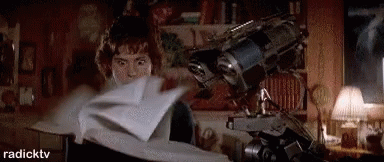The senses take in around 11 million bits per second (11 Mbps). A bit (short for binary digit) is the smallest unit of data in a computer. A bit has a single binary value, either 0 or 1.
| sensory system | bits per second |
|---|---|
| eyes | 10,000,000 |
| skin | 1,000,000 |
| ears | 100,000 |
| smell | 100,000 |
| taste | 1,000 |
11 Mbps is the bandwidth of the typical cable internet connection and perhaps coincidentally the bandwidth required to convey a high definition movie to the brain.
However, when researchers measured information processing capabilities during “intelligent” or “conscious” activities, such as reading or piano playing, they came up with a maximum capacity of fewer than 50 bits per second (50 bps).
For example, a typical reading rate of 250 words per minute works out to about 5 words per second.
250 words per minute / 60 seconds per minute = 5 words/secondThe average word has 5 characters. It requires 16 bits to store a Unicode character on a computer. So the average word is 80 bits.
5 characters x 16 bits = 80 bits/wordMultiplying 80 bits/word by 5 words/second yields 400 bits per second (400 bps).
The mind absorbs 11 million bps through the senses. Since conscious processing is so slow the remainder (nearly the entire 11 Mbps) is processed subconsciously. Divide the data intake by the conscious processing speed and you find that the subconscious mind is likely processing 27,500 times the amount of data the conscious mind can handle.
11 Mbps / 80 bps = 27,500 times faster
